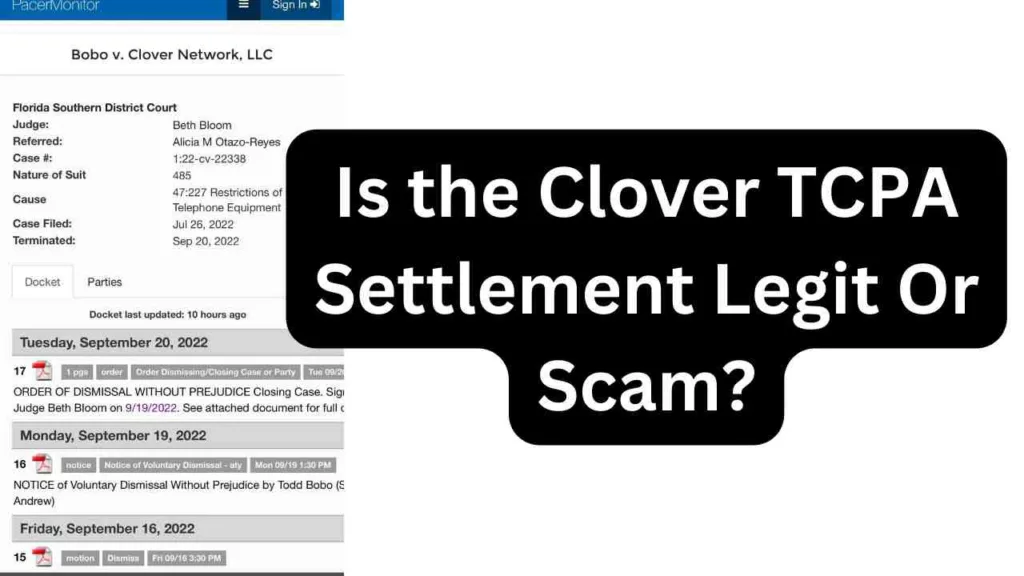Is the Clover TCPA Settlement Mail Legit Or A Scam?

Have you recently received a mailing regarding a settlement in the case of Bobo vs. Clover titled “TCPA Settlement Notice”? If so, you’re likely wondering whether this is a legitimate settlement or a phishing attempt.
This article will delve into the details of the settlement, analyze the red flags mentioned in online discussions, and help you decide how to proceed.
Understanding The TCPA
The Telephone Consumer Protection Act (TCPA) is a federal law enacted in the United States to regulate unsolicited commercial calls, text messages, and faxes. The law restricts the times when such messages can be sent and requires companies to obtain prior consent from consumers before contacting them.
The Bobo vs. Clover Settlement
The mailing you received pertains to a settlement in a lawsuit between an individual named Bobo and a company called Clover. The lawsuit alleges that Clover violated the TCPA by sending unsolicited text messages.
As part of the settlement, Clover has agreed to pay compensation to individuals who can prove they received such messages.
Is Clover TCPA Settlement Legit?
While the settlement itself might seem straightforward, there are some red flags mentioned in online discussions, particularly on a Reddit thread.
1. Personal Information In Mailing
The mailing supposedly includes personal information like phone numbers. This raises concerns for some recipients, who question why the company would need this information if they were already texted in the past.
2. Mismatched Case Numbers
Some users have reported that the case number mentioned in the mailing doesn’t correspond with the case number found in official court documents. This can be a significant red flag, indicating a lack of transparency or potential manipulation.
3. Unnecessary Contact Information Update
The mailing might request you to update your current phone number and email address. This seems unnecessary if they already have your contact information from the alleged text message violations.
Be cautious about providing any personal information unless you’re fully convinced of the settlement’s legitimacy.
4. General Skepticism Around Class-Action Lawsuits
Some people are inherently skeptical of class-action lawsuits, questioning the actual distribution of funds and the potential for lawyers to take a significant portion of the settlement.
5. Past Negative Experiences
Negative experiences with class-action lawsuits in the past can make people wary of participating in new ones. It’s important to understand the specifics of each settlement and not base your decision on past experiences.
Ultimately, the decision of whether to participate in the Clover TCPA settlement rests with you. Carefully consider the red flags mentioned earlier and take steps to verify the settlement’s legitimacy.
Remember, it’s always better to be safe than sorry. If you have any doubts about the legitimacy of the Clover TCPA settlement, it’s best to discard the mailing and avoid responding.
Read: JRM Legal Group Review: Is Jrmlegalgroup.com Legit Or Scam?
